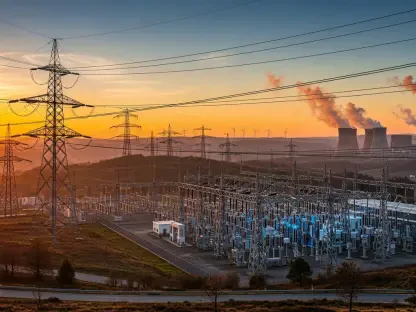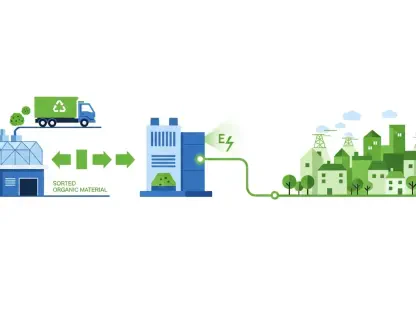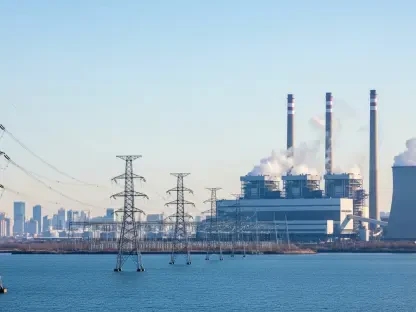In the heart of Southeast Europe, Serbia’s largest oil company, NIS (Naftna Industrija Srbije), finds itself trapped in a geopolitical storm as U.S. sanctions targeting its Russian ownership disrupt operations at a critical time. With the Pancevo refinery—Serbia’s sole major oil-processing hub—facing a potential shutdown due to halted crude deliveries, the crisis underscores a stark reality: energy security and international politics are inseparably linked. This roundup dives into diverse opinions, insights, and potential solutions from industry analysts, policymakers, and regional observers to unpack the challenges NIS faces, the broader implications for Serbia, and the pathways forward in navigating this complex standoff.
Unpacking the Crisis: Why NIS Is Under Pressure
The core of the issue lies in NIS’s ownership structure, with Russian entities Gazprom Neft and Gazprom holding a majority stake, while the Serbian government retains a minority share. U.S. sanctions, enforced as of October 8 this year, target Russia’s oil sector, indirectly ensnaring NIS by blocking bank transactions and stopping crude oil supplies through Croatia’s JANAF pipeline. Industry watchers highlight that this move, while aimed at punishing Russian interests, risks destabilizing Serbia’s energy landscape, raising questions about the fairness and scope of such measures.
A range of perspectives emerges on the intent behind these sanctions. Some policy analysts argue that the U.S. aims to pressure Serbia into aligning more closely with Western stances against Russia, viewing NIS as a leverage point. Others, however, caution that the collateral damage to a non-Russian entity like Serbia could undermine the credibility of sanctions as a diplomatic tool, potentially alienating neutral or balancing nations in the region.
Beyond the political lens, energy sector commentators emphasize the operational chokehold on NIS, noting that the Pancevo refinery’s annual capacity of 4.8 million tons is vital for meeting Serbia’s fuel demands. The consensus is that without swift intervention, the looming deadline for a refinery shutdown—set for late November this year—could trigger widespread economic repercussions, from fuel shortages to price spikes.
Diverse Voices on Serbia’s Energy Security Risks
Operational Fallout: Can Pancevo Survive the Squeeze?
Insights from energy market observers paint a grim picture of the immediate challenges at Pancevo. With crude oil deliveries halted, the refinery’s ability to function hangs by a thread, and Serbian officials have publicly warned of a complete stoppage within weeks if supplies aren’t restored. This urgency has sparked debates over whether alternative supply routes or emergency stockpiles could offer a temporary lifeline.
Some logistics experts suggest that Serbia explore overland oil imports from neighboring non-sanctioned sources, though they acknowledge the steep costs and infrastructural hurdles of such a shift. In contrast, others in the industry argue that short-term fixes are insufficient, stressing that the sanctions expose a deeper vulnerability in relying on a single refinery for national energy needs.
A third perspective comes from economic analysts who focus on the ripple effects beyond the refinery walls. They warn that prolonged disruption could destabilize Serbia’s fuel market, impacting everything from transportation to agriculture, and potentially fueling inflation. This viewpoint underscores the need for contingency planning to mitigate consumer panic and maintain market confidence.
Geopolitical Tightrope: Balancing East and West
On the diplomatic front, opinions vary widely about Serbia’s position between historic ties with Russia and mounting Western pressure. Regional political commentators note that Serbia’s reluctance to fully align with EU or U.S. policies on Russia has amplified its exposure to sanctions, with some suggesting that a clearer pivot toward Western integration might have softened the blow.
Conversely, other observers argue that Serbia’s neutral stance is a strategic necessity, given its cultural and economic links to Russia. They point to Croatia’s role in halting oil flows through the JANAF pipeline as an example of how regional dynamics complicate Serbia’s options, urging a broader dialogue among Balkan states to address shared energy trade challenges.
A distinct angle comes from international relations analysts who speculate on the future of NIS ownership. They propose that Russia’s search for new partners, as mentioned by Serbian leadership, could reshape the company’s structure, potentially reducing Russian influence. However, skepticism remains about whether viable investors can be found under the current sanctions regime.
Diplomatic Efforts: Hope or Hurdle?
Serbian President Aleksandar Vucic’s push for a resolution garners mixed reactions from policy experts. Many commend his proactive approach, including plans for high-level talks with EU and Russian officials, as a signal of Serbia’s intent to broker a collaborative solution. His optimism about finding a way forward is seen as a necessary stance to reassure both domestic and international stakeholders.
However, some diplomatic analysts express caution, pointing out the lack of concrete proposals or identified partners to take over Russian stakes in NIS. They argue that while dialogue is essential, the tight timeline and rigid sanctions framework limit the likelihood of a quick fix, suggesting that Serbia may need to prepare for a prolonged crisis.
A contrasting viewpoint from global energy policy circles highlights the potential precedent this situation could set. If successful, Serbia’s diplomatic maneuvers might offer a blueprint for other nations caught in similar sanction-driven conflicts, emphasizing the importance of multilateral engagement over unilateral concessions. This perspective frames the crisis as a test of innovative statecraft.
Key Takeaways from the NIS Dilemma
Synthesizing the range of opinions, several critical insights emerge about NIS’s predicament. Energy security remains the most pressing concern, with broad agreement that Serbia must diversify its supply chains to avoid over-reliance on a single refinery or pipeline. Analysts also converge on the need for transparent communication from authorities to manage public expectations around potential fuel disruptions.
Differing views on geopolitical strategy reveal a divide between those advocating for a decisive shift toward Western alignment and others championing Serbia’s balancing act as a form of pragmatic sovereignty. On the operational front, while short-term workarounds are proposed, the consensus leans toward systemic reforms in energy policy as the only sustainable path forward.
A notable point of contention is the effectiveness of sanctions themselves. While some see them as a necessary tool to curb Russian influence, others critique their indiscriminate impact on nations like Serbia, calling for more tailored approaches that minimize collateral harm. This debate underscores the complexity of applying global policies to local contexts.
Reflecting on the Path Ahead
Looking back, the discussions around NIS’s struggles under U.S. sanctions reveal a multifaceted crisis that tests Serbia’s resilience on both economic and diplomatic fronts. The varied perspectives—from energy experts warning of operational collapse to political observers dissecting geopolitical maneuvers—highlight the intricate interplay of local needs and international pressures.
Moving forward, actionable steps emerge as a priority. Serbia could focus on accelerating partnerships for alternative oil imports, even if temporary, while investing in long-term energy diversification. Policymakers might also consider legal avenues to challenge or negotiate exemptions within the sanctions framework, setting a potential model for other nations in similar binds.
Beyond immediate fixes, the crisis points to a broader need for regional cooperation in Southeast Europe to stabilize energy trade routes. Exploring collaborative frameworks with neighboring countries could prevent future disruptions, turning a moment of vulnerability into a catalyst for stronger alliances and smarter policies.









